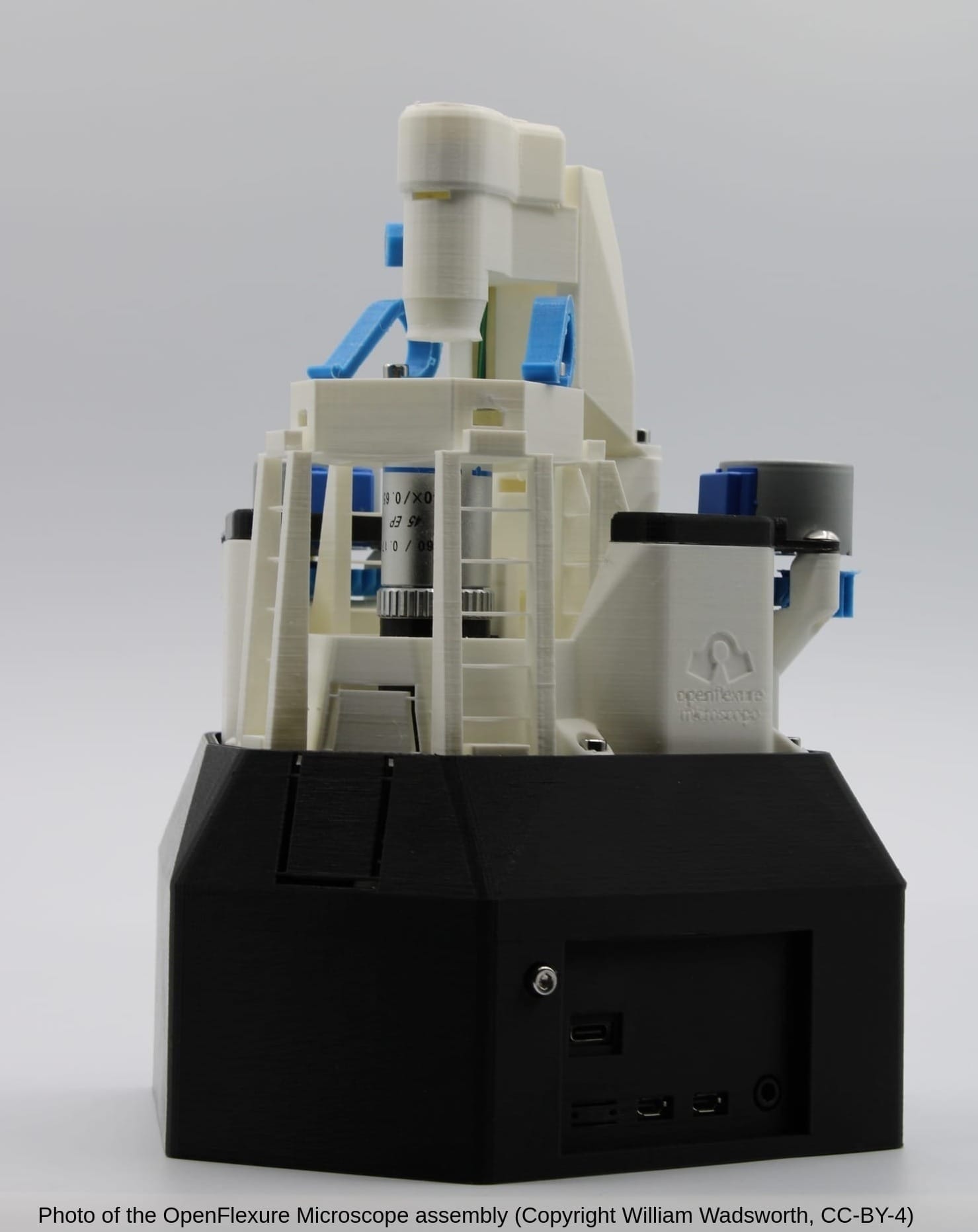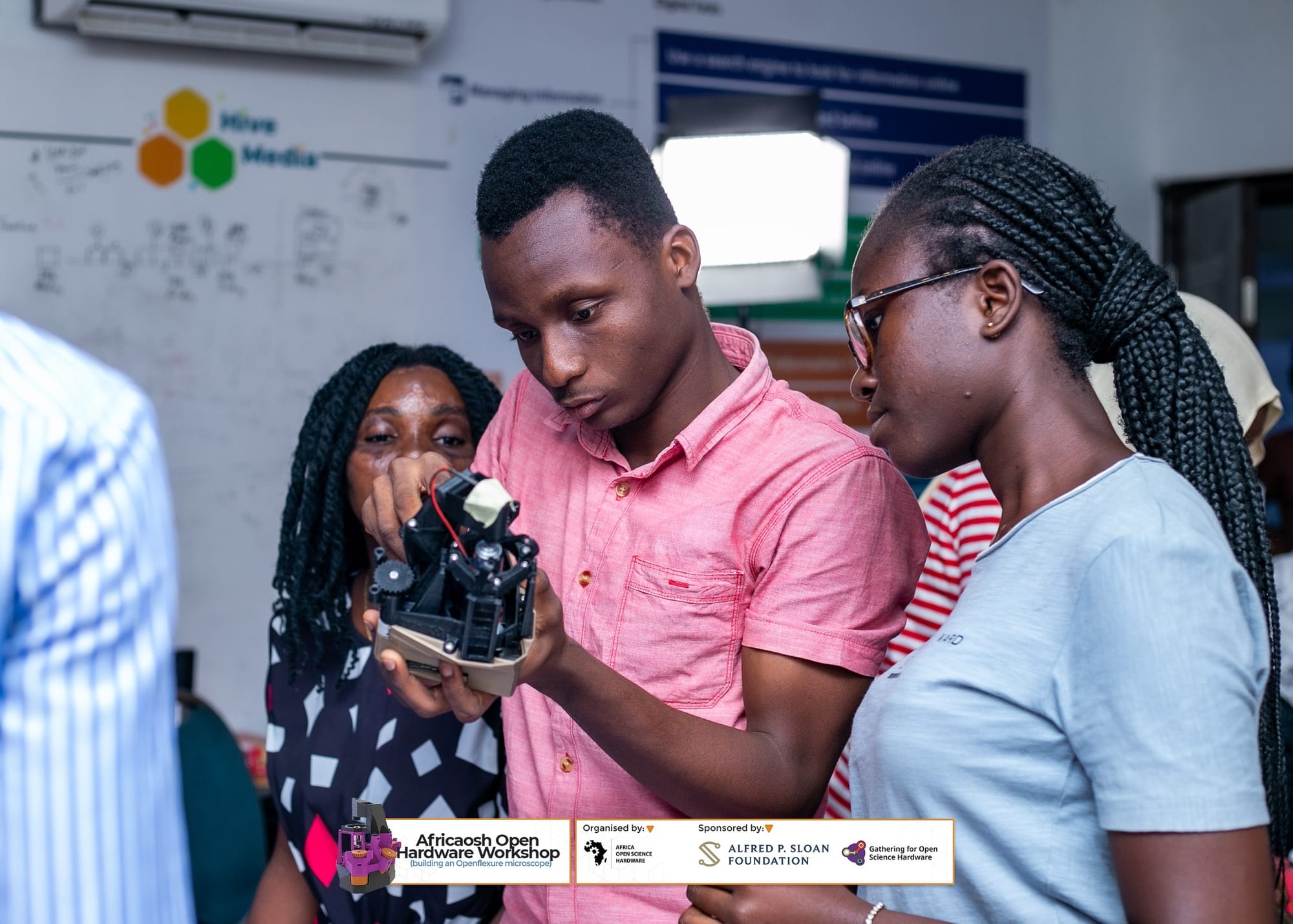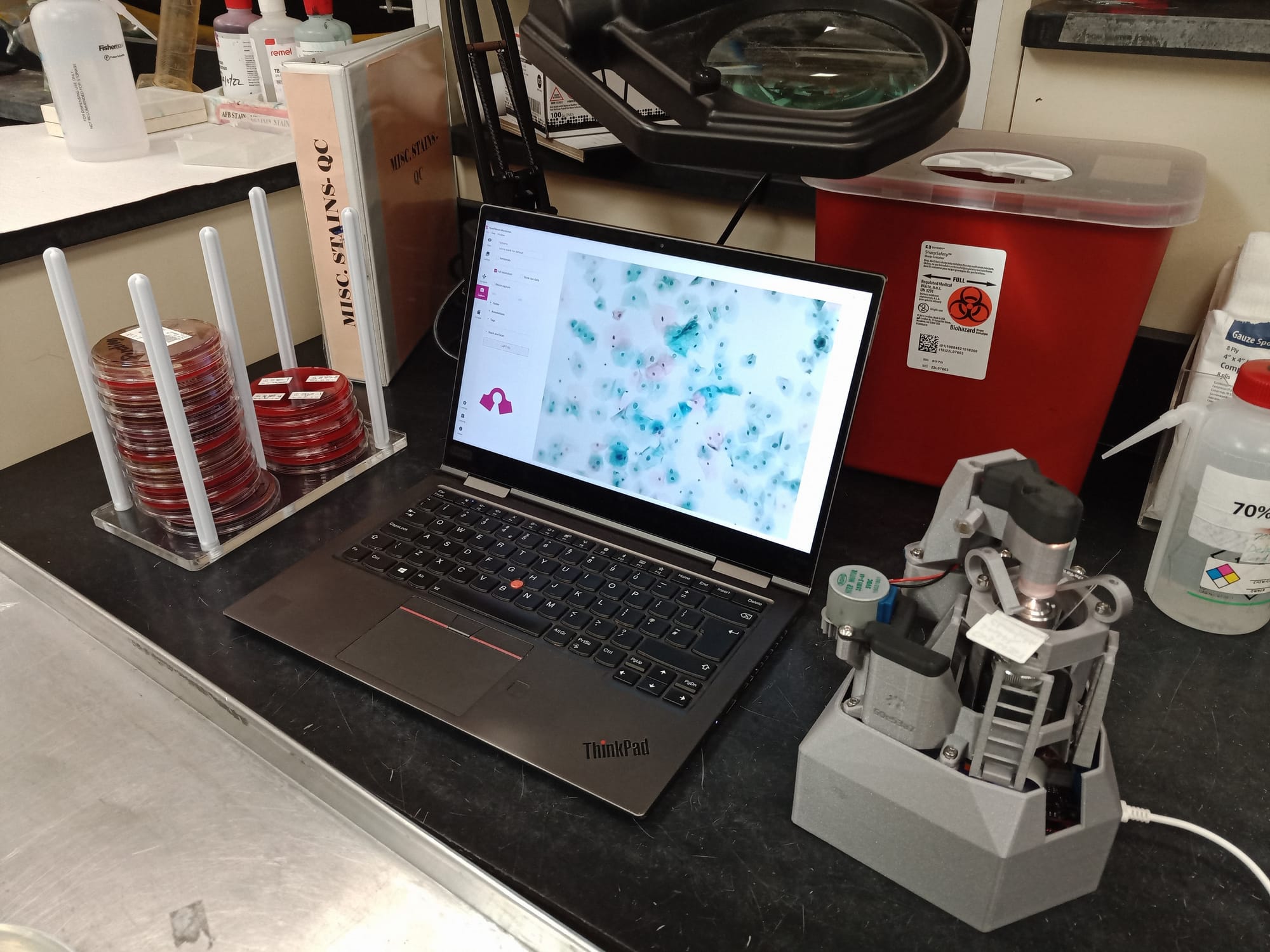Official launch of the OpenFlexure vendors page
This year the Open Science Shop community has been collaborating with the OpenFlexure team with the goal of building a global network of OpenFlexure microscope kit vendors. We have been organizing monthly OSS-OFM working group meetings since February which are archived here. We are really excited by how much progress we have made already, particularly with building the Vendors Page. We have also organized our first pooled order, making microscope parts more affordable for both vendors & customers. The OSS-OFM working group meetings will continue in 2025 as we hopefully onboard more vendors and much more. Stay tuned for updates! For questions about Open Science Shop, reach out via email to admin@openscienceshop.com.
This month, OpenFlexure officially launched the vendor page through a press release, shared below. We would be happy to see this work shared, so feel free to post to your blogs, social media or newsletters. For more details, please contact Dr. Julian Stirling, julian@openflexure.org.

Open - Source Laboratory - Grade Robotic Microscopes Launches Kit Sales Globally
Project PageSummary
Automated microscopes are vital tools in advanced diagnostic and research labs, but they are typically produced in wealthier countries and are difficult to access and operate in regions with limited infrastructure. The OpenFlexure project provides open source blueprints that have enabled engineers and makers around the world to build and maintain their own microscopes. This week marks a huge step forward in the availability of accessible microscopy, as it is now possible to purchase an OpenFlexure Microscope. This is thanks to a collaboration between the OpenFlexure project and Open Science Shop, a manufacturing network specialising in open science hardware. Rather than following a traditional approach of centralised manufacturing, this collaboration focuses on distributed local production. A vendor list announced today has eleven independent manufacturers in five different continents producing microscopes or microscope kits. Many of the companies have volunteered to donate a proportion of profits back to the open project.
Experimental science relies on scientific equipment. Microscopes are perhaps the most iconic piece of scientific equipment due to their versatility and ubiquity in scientific laboratories. While microscopes have been essential for biological and medical research for over a century, they are still undergoing heavy development. New research provides an ever-growing list of different modes of microscopy that offer new detection capabilities. Microscopes are becoming smarter, more automated, and more digital. As microscopes become more automated, they can also become harder to maintain and customise. This has led to an explosion of interest in open source microscopy.
This week marks a huge step forward in the availability of customisable, high-quality microscopes thanks to a collaboration between the OpenFlexure project and Open Science Shop, a manufacturing network specialising in open science hardware. Rather than following a traditional approach of centralised manufacturing, this collaboration focuses on distributed local production. The network announced today has eleven independent manufacturers in five different continents manufacturing microscopes or microscope kits. Many of these companies plan to reinvest a percentage of profits into the microscope’s development, supporting the future of this and similar projects.

TheOpenFlexure Microscope is an open source design for a laboratory-grade, motorised, digital microscope. The microscope uses an innovative 3D-printed mechanism that is capable of reliable sub-micron positioning in 3D, even when printed on a low-cost 3D printer. The microscope has been built or used in at least 50 countries, on all seven continents, and in environments ranging from the Antarctic sea ice to the rainforest in Panama. However, up until recently every user had to build their own microscope from scratch.
“It’s incredibly exciting to see the open source project reach the point where microscopes are being sold,” said Dr. Bowman, the founder of the OpenFlexure Project. “The whole project started off with me goofing off one Friday afternoon trying to see how much of a microscope could be 3D printed; now the microscope is being manufactured across the world!”
The OpenFlexure project has long-term aspirations to support medical microscopy for detecting diseases such as malaria and cancer, as well as training medical students on digital pathology. “The Microscope is currently being tested for medical applications in Tanzania, Rwanda, and the Philippines,” explains Dr. Bowman. Local and distributed manufacturing is essential to the project’s goals of revolutionising medical microscopy in under-served communities. Access to medical equipment in the Global South is severely limited, in part because equipment purchased in the Global North is not designed for the environment it is being used in, and because there is no local supply of spare parts for maintenance. A microscope that can be manufactured locally can be maintained locally, keeping control of the device within the community where it’s needed. The manufacturing network launched this week doesn’t support medical use, but is a first step towards creating sustainable distributed manufacturing.

Robotic microscopes like the OpenFlexure open up new frontiers in healthcare and scientific research. The microscopes can create giant panoramic images of entire samples made up of hundreds of individual images. The giant panoramic images are essentially digital microscope slides. This means the doctor diagnosing a patient doesn’t need to be in the same room as the sample, or even in the same country! Digital slides also open up opportunities for training doctors, and or even AI models.

It may be some time before the open source microscope is approved for medical use, but it is already being used for training, research, and education.
“Educational workshops teaching students and teachers to build their own microscopes have been taking place in Ghana and Sweden; modified OpenFlexure Microscopes have been the subject of peer-reviewed publications from Japan; we even know of groups building our microscopes in mobile makerspaces in Ukraine.” Said Dr Bowman “This was all possible from a design we put online. We are really excited to see what will happen once anyone can buy a kit, rather than needing to source or make each component themselves.”
- For more details contact Dr. Julian Stirling, julian@openflexure.org
- Project website: https://openflexure.org/
- Vendors page: https://openflexure.org/about/vendors
